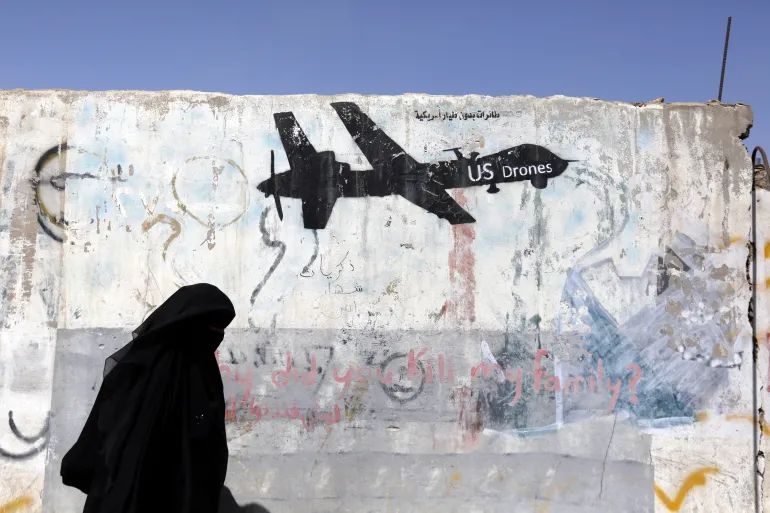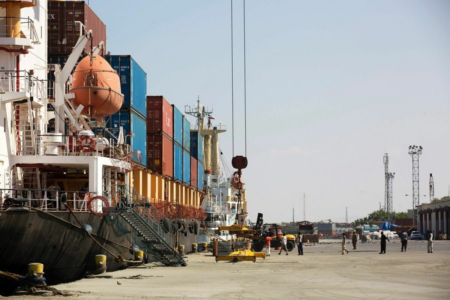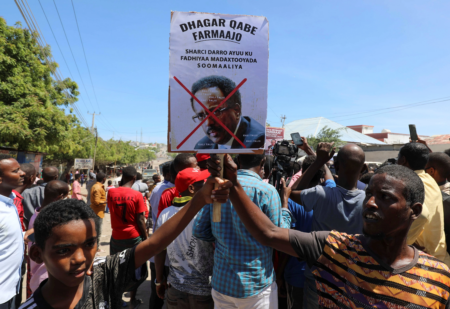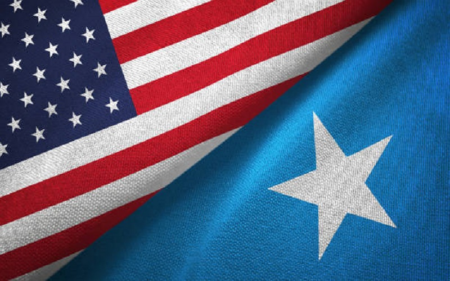On April 1, 2018, Luul, who is 22, and her four-year-old daughter Mariam were killed in a US drone strike while traveling to visit Luul’s brother in the nearby town of Dac.
But what led them to this destiny?
Dreaming of A Better Future Despite All Bad Circumstances
Growing up in a nomadic family in Somalia’s Galgaduud region, Luul Dahir Mohamed shared the same reality as many girls in her community: no access to formal education.
Despite her circumstances, she dreamed of a better life for her children.
After her marriage ended, she moved from her rural village of Bergan to the town of El Buur in 2018, hoping to provide her son and daughter with new opportunities.
But just a few months later, tragedy struck and a US drone strike ended their lives.
Deadly US Drone Strike and Its Aftermath
According to Luul’s family and local reports, the pick-up truck carrying Luul and other passengers was hit by a US drone.
Survivors later found Luul’s body about 60 meters from the truck, still holding her daughter.
“They knew it was a woman and child, and then they fired once again, killing them both,” said Abubakar Dahir Mohamed, Luul’s brother, who now lives in Mogadishu.
AFRICOM Denies Targeting Civilians
At the time, the US Africa Command (AFRICOM) denied civilian deaths, claiming the strike had targeted “five terrorists.”
Yet one year later, under pressure from human rights groups, AFRICOM admitted that a “mother and child” had been killed – its first-ever acknowledgment of civilian casualties in Somalia.
However, Luul and Mariam’s names were never mentioned in official reports.
AFRICOM’s Civilian Casualty System Under Fire
AFRICOM has conducted more than 410 air raids in Somalia since 2005, according to independent tracking groups.
While the US military says its strikes target armed groups like al-Shabab, rights organizations regularly report civilian deaths.
In 2020, AFRICOM launched an online civilian casualty reporting portal.
But critics say it is poorly designed for Somali victims.
Read also: Costs of Israel War on Gaza Exceed USD50 Billion
Why the Online Civilian Casualty Reporting Portal is Not Accurate?
The form is only in English, inaccessible to those in al-Shabab-controlled areas, and nearly impossible for many rural Somalis to use due to restrictions on the internet and mobile devices.
“The current civilian complaint system is profoundly inadequate,” said Eva Buzo, Executive Director of Humanus, a legal rights organization representing Luul’s family.
“It has repeatedly failed victims who have exhausted every available channel.”
Victims’ Families Face Silence
Abubakar says he tried twice to contact AFRICOM – through its public relations section and later through the online portal – but never received a response.
AFRICOM told media outlets that “representatives” were communicating on behalf of families, but Abubakar insists his family had no representation until Humanus took their case in 2023.
This pattern is not unique.
In another case, the Kusow family lost loved ones in 2020 due to a US drone strike while preparing dinner in southern Somalia’s Jubba Valley.
While AFRICOM later admitted civilian harm, the family received no compensation.
Culture of Impunity and Calls for Accountability
Human rights groups, including Amnesty International and Human Rights Watch, have long criticized AFRICOM’s lack of transparency.
Analysts argue that the refusal to pay compensation reflects a “culture of impunity” surrounding US drone operations in Somalia.
“When US authorities are unwilling to compensate surviving family members, it shows their complete disregard and their sense of immunity from accountability,” said Somali analyst Abukar Arman.
Over 80 Air Strikes in 2025
During President Donald Trump’s last term, the US carried out more than 200 air raids in Somalia – more than all previous administrations combined.
While in this year alone, over 80 air strikes have already been reported.
For Abubakar and Mohamed, the families of Luul and Mariam, the pain remains raw.
“The manner in which they treated our family shows the world that the American government is not genuine about upholding international law and human rights,” Abubakar said.
“It’s like they killed us twice.”
The Human Cost of US Strikes in Somalia
The story of Luul and Mariam highlights the human cost of US military operations in Somalia, a subject often overlooked in international media.
Without a fair and accessible system for addressing civilian casualties, victims’ families remain in the shadows, unable to seek justice or closure.
As US operations continue in Somalia, rights groups and families are calling for a transparent, Somali-accessible reporting system and reparations for victims – a step they argue is essential to rebuilding trust and accountability.








